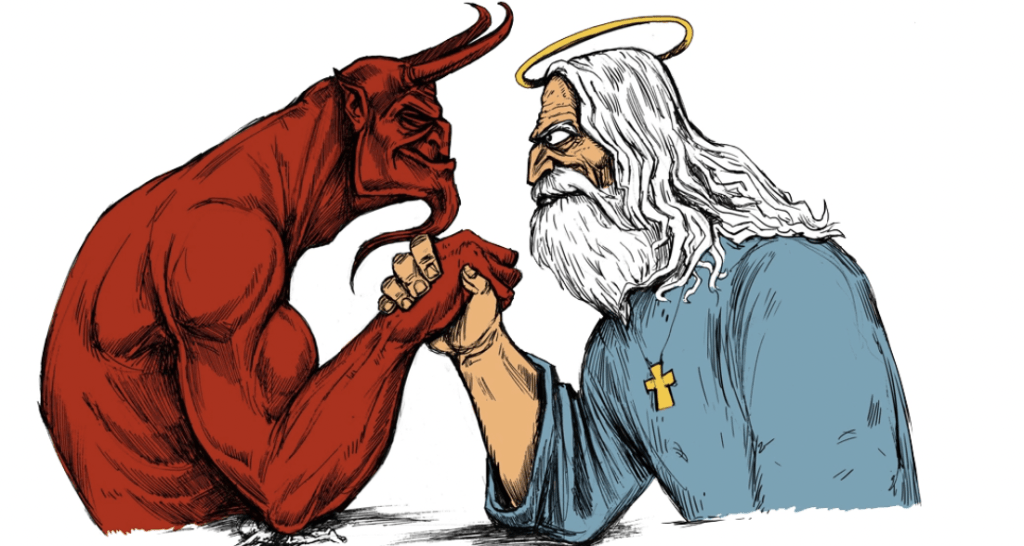“Bulls vs. Suns, 1993” by José Olivarez “Father and Son – Basketball Days” by Ashvin Harrison
The poem Bulls vs. Suns, 1993 by José Olivarez and the painting Father and Son – Basketball Days by Ashvin Harrison complement each other well as they both encompass themes of companionship and love between father and son through the game of basketball. Olivarez begins the poem by describing the immense fascination and fun he had while watching the NBA finals with his father, while also describing the love he felt from his father when he was celebrating. Similar sentiments can be pulled from the painting, as we can see that the father and son are holding hands and presumably walking to play basketball with each other. We can imply that the father is showing the same affection and love towards his son because he is taking time out of his day to spend time with his boy and play basketball with him. The author’s use of warm and bright colored leaves on the tree, presumably representing autumn where the leaves change color, also adds to the effect of comfort and love that is expressed between the father and son illustrated in this painting. A few lines later in the poem, Olivarez writes, “love was your fists closed and not fighting for once, your fists fireworks above your head.” He includes this sentiment in the poem to show how in the past his father had been fighting or violent, and it was nice and pleasing to see him with his fists balled up, but not for anger or for fighting, but rather in exclamation and happiness for watching the game of basketball. Harrison potentially illustrates this concept through the physical body manner and representation of the father in the painting. We can see that he is dressed in a long sleeve shirt and pants, suggesting that he might have just gotten off work or was supposed to be dressed nicely for some reason. We can also read the body language of the man, and can observe that he seems a little tense and possibly upset, potentially having to do with work or the other stressors in life. This can connect to how Olivarez’s father felt, as stress and anger can be complimentary feelings. We can also connect their responses to these emotions, as the joy and cheer that Olivarez’s father was showing at the basketball game can be compared to the gracious and loving gesture that the boy’s father is showing by taking him out to play basketball in the painting, regardless of how they have felt or been feeling. Finally, the last part of Olivarez’s poem expresses the longing and desire that he had as a kid for being recognized and getting the approval of his father. He writes that “my heart running suicides to be in your heart’s hall of fame” in order to show how he desires to earn a lasting place in his father love and memory. We can infer that the painting includes a similar message and feeling as to what Olivarez felt, because most kids seek approval and love from their parents, and this tends to be especially prevalent between father and son. The son was probably longing to play basketball with his father, and it seems like his father has made time to play basketball with his son outside, which has made him feel better and loved by his father. (Word Count: 556)






